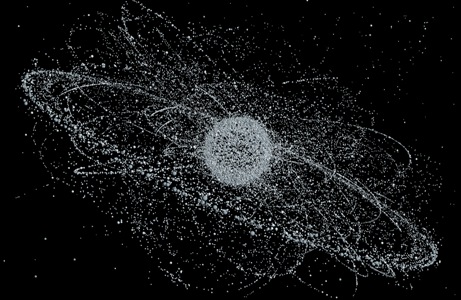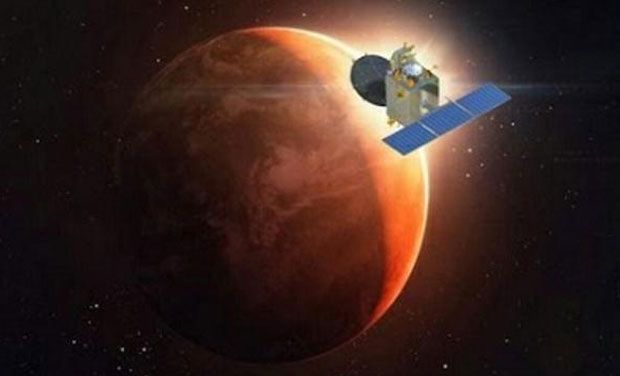
NEW DELHI (PTI): ISRO chairman K Radhakrishnan has raised concern over the safety of satellites due to space debris and batted for a comprehensive space policy for the country.
At a time when space assets are becoming part and parcel of daily life, its safety must be ensured, said Radhakrishnan, who is also the secretary of the Department of Space.
"There are so many thousands communication satellites and less than 100 various other types of satellites. What happens to those elements after their work is over. This is a new area of study.
"Are we able to catalogue them? Are we able to predict their movement? Are we able to see whether our actual satellites are safe from them?... How do we move them to safety? If we can tackle that or if we can identify arrival of debris, a spacecraft can itself move out of the place," Radhakrishnan said.
The Indian Space Research Organisation (ISRO) chairman was delivering a lecture on 'Contribution of India's Space Programme in Nation Building' at Institute for Defence Studies and Analysis here.
He added that there are nearly 15,000-16,000 space debris scattered in the space.
"Debris are also created intentionally and also generated unintentionally. When we depend on space assets to be part and parcel of our lives, it is essential to ensure their safety.
He said efforts are being made at the international level to deal with this problem.
"There are groups in the international arena which are looking at the issue of intentional creation of space debris through guidelines and general arrangements. There are groups, experts looking at these debris and how to deal with it," he said.
Radhakrishnan also said that government was looking to have an overall space law for the country. "In January 2015, we are going to have a workshop on this. We are working with a Hyderabad-based institute and the International Institute of Space Law School," he said.
The ISRO chief said policies related to different aspects like space and remote sharing of remote sensing data was in place, but there was a need to have an overall policy.
"In the country, we have a policy on satellite, we have a SATCOM policy, which is there is on our website. For remote centre data dissemination, what kind of data can be given to which agency, we do have a policy and it is well known. An overall space law for the country is what we are trying to evolve. The workshop is supposed to provide light on the issue," he said.
Radhakrishnan said that when it comes to human space module and robotics India is not been able to make inroads as compared to other countries, but the country would master the art and the space agency is working towards it.
"India is making the beginning by looking at the difficult technology in this area. We are going to, by December 2014, have a test flight of our GSLV Mark III.
"It's a crew model we have prepared for the human space module. It's an unmanned crew model. As it enters the atmosphere we wish to know what happens to it and how does it stand," he said.
 Previous Article
Previous Article Next Article
Next Article












The Indian Air Force, in its flight trials evaluation report submitted before the Defence Ministry l..
view articleAn insight into the Medium Multi-Role Combat Aircraft competition...
view articleSky enthusiasts can now spot the International Space Station (ISS) commanded by Indian-American astr..
view article